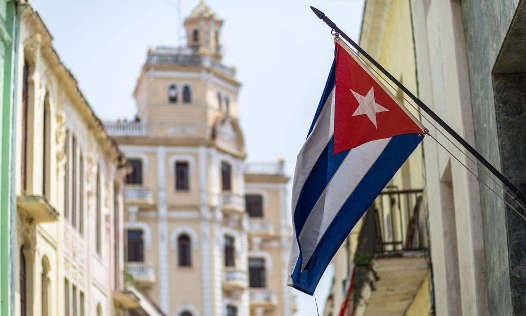Payment is being processed. Please do not refresh or close this page until your payment is complete.
 Book an Appointment
Book an Appointment

Starting July 1, 2025, Cuba will eliminate tourist cards and require all international travelers to obtain an e-Visa before entry. This digital overhaul aims to simplify the process and enhance border control. Here's everything you need to know, including entry rules, affected countries, and how to apply.
In a major shift to modernise its border procedures, Cuba will permanently discontinue its long-standing tourist card system on June 30, 2025. Starting July 1, all international travellers, except most Canadians, must obtain an electronic visa (e-Visa) before entering the country.
This change is part of a broader move by the Ministry of Tourism of Cuba (MINTUR) to streamline and centralise its visa application process.
e-Visa Cuba Portal Now Live
The Cuban Ministry of Tourism (MINTUR) has announced this pivotal change following the launch of its official eVisaCuba portal. This online platform aims to centralise and simplify the visa application process, eliminating the need for physical documents and offering greater convenience for prospective visitors.
“With e-Visa, applicants can start their visa process virtually, from any device connected to the Internet,” explained MINTUR.
“This platform simplifies the visa application and management process, eliminating the need for additional physical documents. In addition to its ease of use, e-visa stands out for its user-friendliness and contribution to environmental protection.”
What Was the Previous Entry Rule for Tourists?
Before this change, travellers from dozens of countries, including most of Europe, Latin America, and parts of Asia and Africa, could enter Cuba using a tourist card, also known as a Tarjeta del Turista. This card was:
• Often issued by airlines or travel agencies,
• Easy to acquire without consulate visits,
• A single-entry document valid for up to 90 days, with an option for extension.
The card acted as a simplified travel permit for leisure travellers, with no prior visa application needed in most cases.
Who Is Affected by This Change?
The end of the tourist card system will affect travellers from more than 40 countries that previously enjoyed simplified entry, including:
• United Kingdom
• Germany
• France
• Italy
• Spain
• Mexico
• Argentina
• Brazil
• India
• China
• South Africa
• Australia
• New Zealand
New Rule: Apply for a Cuba e-Visa Before Travel
Under the new regulations, all non-Canadian travellers must apply for a Cuban e-Visa through the recently launched eVisaCuba platform. This move is designed to:
• Digitise the visa process.
• Reduce paperwork.
• Improve border control efficiency.
• Promote eco-friendly practices.
According to the Ministry of Tourism, the platform allows applicants to submit their visa requests from any internet-connected device, eliminating the need for paper forms or consulate visits.
Important Caveat: No Online Payments Yet
While the application process is digital, eVisaCuba currently does not support online payments. Instead:
• Payments must be made directly through the Cuban consulate in your country.
• Or via authorised travel agencies, some of which may offer bundled services including online payment and visa processing.
Validity and Extensions
Once approved, the Cuban e-Visa is valid for:
• A single entry,
• A stay of up to 90 days,
• With the option to extend for another 90 days within Cuba.
This means travellers can stay in Cuba for up to 180 days if an extension is granted.
Special Case: Canadian Travellers
Great news for Canadian citizens planning a direct flight to Cuba! According to MINTUR, the required electronic visa will be automatically included in your airline ticket, thanks to existing agreements with Canadian airlines. This means a seamless process for many Canadian visitors.
• If flying directly from Canada, the e-Visa is automatically included in their airline ticket.
• No separate application is required.
• However, if Canadians transit through another country, they must apply for an e-Visa separately.
Don’t Forget the D’Viajeros Form
Regardless of nationality, all travellers must complete the D’Viajeros online form within 7 days before arrival. This mandatory form collects:
• Health
• Immigration
• Customs information
Entry Requirements for Cuba from July 1, 2025
Travellers entering Cuba with an e-Visa from July 1 must carry:
• A passport valid for at least 6 months beyond your date of entry;
• The D’Viajeros QR code and your electronic visa number;
• Proof of travel insurance with medical coverage;
• A return or onward ticket.
Plan Ahead Before You Fly
Cuba’s transition to an e-Visa system marks a big change for frequent travellers to the Caribbean island. While the move enhances security and streamlines entry, it also adds a step to your travel prep. Make sure to:
• Apply for your Cuban e-Visa well in advance,
• Complete your D’Viajeros form before your trip.
• And check with your airline or travel agency for any country-specific steps.
Source: https://travelobiz.com/cuba-tourist-card-replaced-mandatory-e-visa-july-2025/